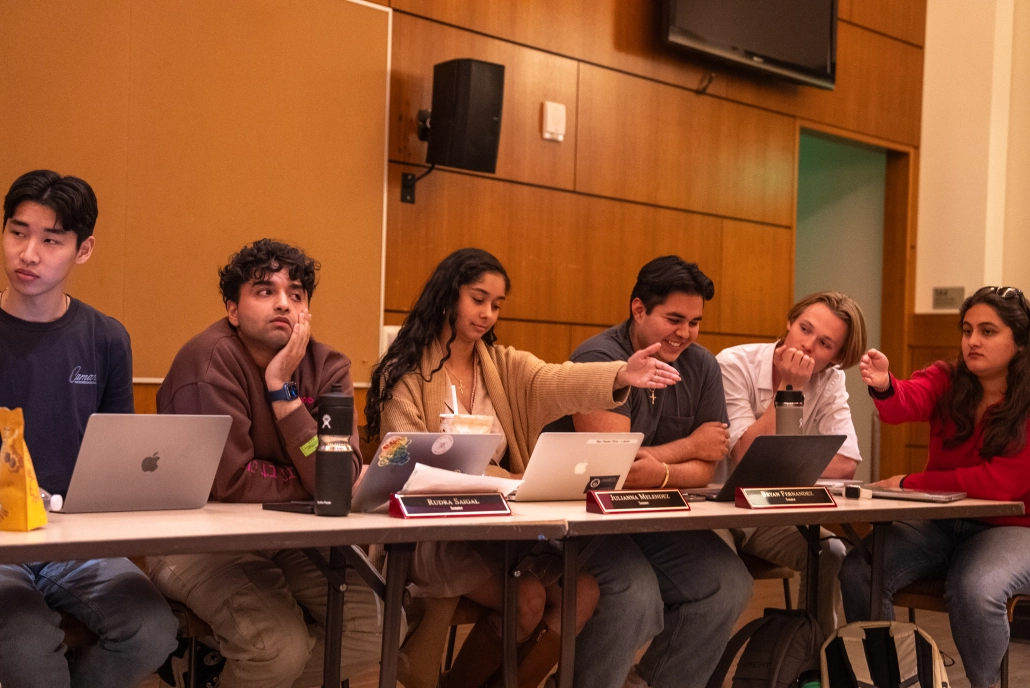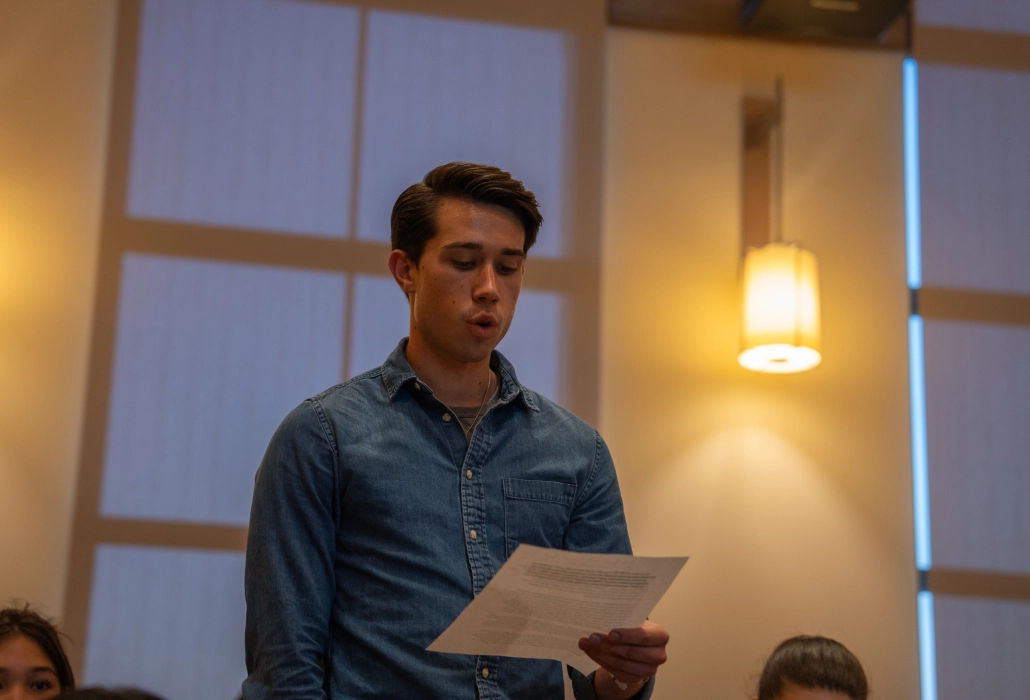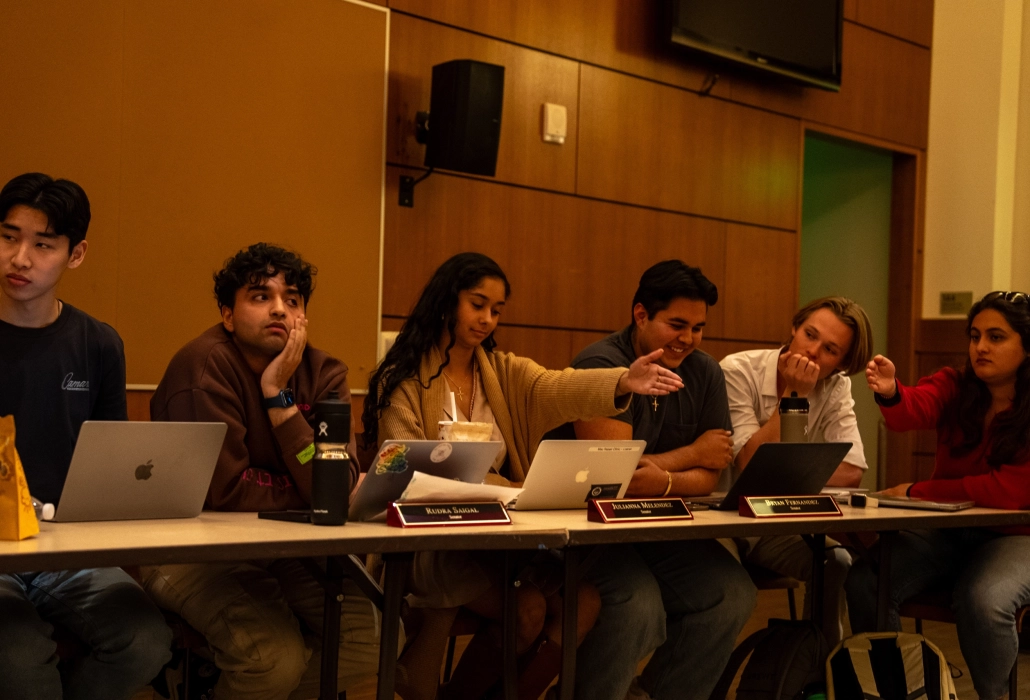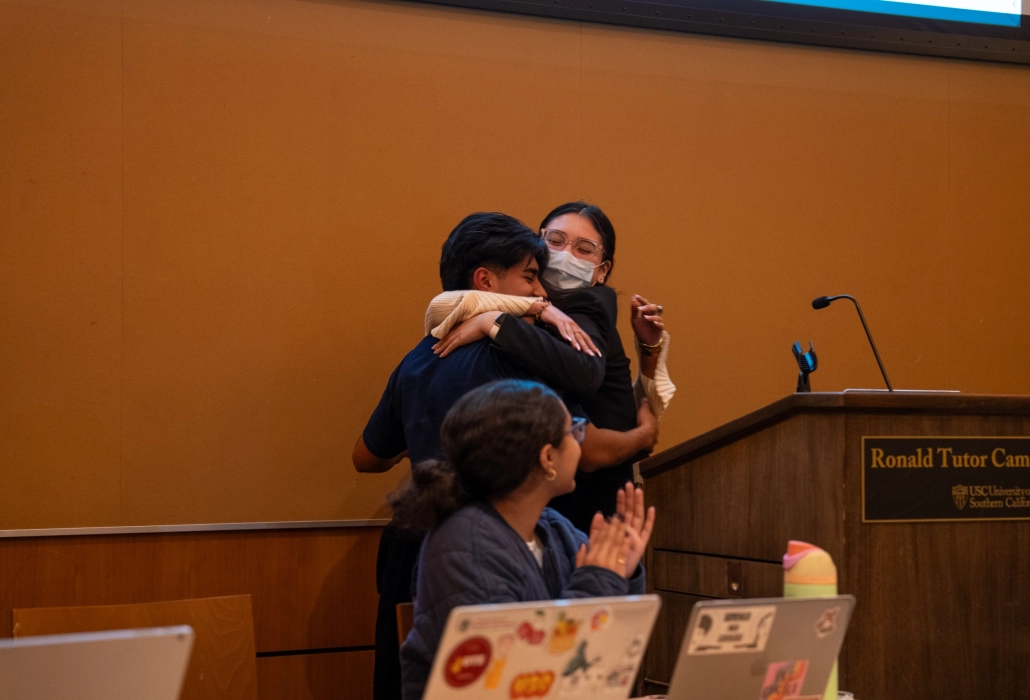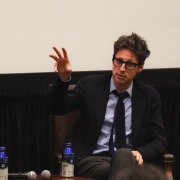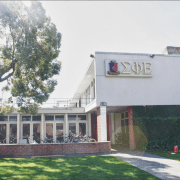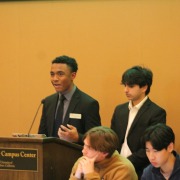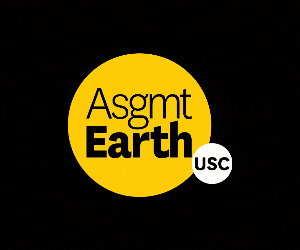In a nearly three-hour meeting Tuesday night, the Undergraduate Student Government senate narrowly voted to receive and file complaints against senator Brandon Tavakoli, forgoing more serious censure or removal proceedings.
The complaints, filed by chief of staff David Martinez, detailed four instances of missed office hours. USG senators are required to hold eight office hours per week by a combination of in-person hours, virtual hours and public hours.
The disciplinary hearing, which occurred during the senate meeting, gave senators the option to withhold the remainder of Tavakoli’s pay, remove him from office or censure him. The latter two options required a two-thirds vote of the senate.
Daily headlines, sent straight to your inbox.
Subscribe to our newsletter to keep up with the latest at and around USC.
Martinez outlined that Tavakoli received a warning Sept. 13 as well as strikes Sept. 18, Oct. 23 and the week of March 18.
In his allotted time during discussion, Tavakoli said the initial issues were due to his job at the Los Angeles City Council. Tavakoli attributed the Oct. 23 attendance issue to discomfort entering the USG office following the Oct. 7 attacks in Israel.
Tavakoli said he spent the time meeting with groups who were similarly uncomfortable meeting in the USG office. He also described time that was not recorded, which he spent in meetings regarding data collection by Web Registration and creation of a printing stipend. Regarding his third strike, Tavakoli said he fell ill the week of March 18 and received an excused absence for senate attendance.
The senator also said Martinez had failed to follow USG policy regarding his first strike since he had not scheduled a meeting between Tavakoli and the executive cabinet.
Ariela Moel — vice president of Israel Affairs at USC Hillel — and Aidan Bloomstine — assistant director of the Trojan Pride Committee — gave statements in support of Tavakoli at the start of the meeting. They praised his work to bridge the gap between the legislative and programming departments as well as his work with Jewish student organizations.
Opponents of punishing Tavakoli called for empathy and said the hearing was punishment enough.
“I have tried to lead with empathy, and that is exactly what I am going to do tonight,” said Rudra Saigal, the speaker of the senate. “I believe that this public hearing is a slap on the wrist enough for senator Tavakoli. This will be something that permanently will be on his record.”
Senators were also unable to find a definition of censure in the bylaws and searched for a definition online. Some senators felt a censure was equivalent to a slap on the wrist while others felt it had too strong of a negative connotation. They also expressed concern about the limited length of the remaining term.
“There are 20 days left in the semester. Senators, we should be a united group. We should be, in a way, looking out for each other in the best interest of the student body,” said senator Christian Shaw.
Senator Bryan Fernandez — the 2024-25 president-elect — introduced an amendment to vote on the motion as a censure, counting the preceding debate as the censure.
Senator Klarissa Palacios, who voted twice to receive and file the charges — a procedure that means no action by the senate — said she was uncomfortable with passing a resolution that was not clearly defined in the bylaws.
“I feel like all of us would be more comfortable having this outlined specifically,” Palacios said. “I don’t want my name attached to something that I cannot cite.”
An effort to pass the amended motion failed with six votes in favor of censure to five votes against and Tavakoli abstaining — short of the needed two-thirds majority. Saigal and senators Coleman Cochran, Palacios, Shaw, and Matthew Speier voted against the censure, and senators Diana Carpio, Fernandez, Julianna Melendez, Isabella Padilla, Halle Schaffer and AnnaOlivia Schwedt voted in favor. Schaffer was not in attendance at the meeting and cast her vote in advance.
Saigal then moved to receive and file the complaints. This motion required only a majority vote and failed with five votes in favor to six votes against and Tavakoli, again, abstaining. Saigal, Palacios, Schwedt, Shaw, and Speier voted in favor, and Carpio, Cochran, Fernandez, Melendez, Padilla and Schaffer voted against.
The senate was given the option to pass another measure to define a censure specifically, but declined. A second motion to receive and file succeeded with Cochran having changed his vote.
Tavakoli was reelected to a second term in the senate in February. He will serve alongside Carpio, who was selected as speaker of the senate by the incoming class of senators. In an interview after the meeting, Tavakoli said he was grateful for his colleagues’ support.
“I feel really just grateful and heartened that the colleagues that I work with every day are able to recognize the deep passion and the deep care and respect that I have for this organization,” Tavakoli said.
Earlier in the meeting, the senate also voted to incorporate the Undocumented Trojan Success Assembly as a trial assembly and confirmed directors and assistant directors of the Academic Culture Assembly, Asian Pacific American Student Assembly, Black Student Assembly, Latine Student Assembly and Native American Student Assembly.
The trial period will extend from Aug. 26 to Dec. 6. Improving Dreams, Equality, Access, and Success, a group committed to dialogue among undocumented students and allies, had a USG advocacy liaison prior to the bill. The IDEAS advocacy liaison will now serve as the advocacy liaison for UTSA. UTSA also received $5,000 in funding for the trial period.
IDEAS executive board member Kevyn Calleja and advocacy liaison Heydy Vasquez said during the meeting they plan to use the funds for a conference with undocumented student resources, intersectional events with other programming assemblies and a town hall.
“[Incorporation] would allow greater effective programming and visibility as we mentioned for the undocumented student population. [Incorporation] ultimately legitimizes the presence of undocumented students here at USC and solidifies the University’s commitment and more specifically the student body’s commitment to serve these students,” Calleja said.
After voting to receive and file the complaint, the senate voted to end the meeting, cutting short a presentation by Martinez about changes to the USG constitution for the coming year.
Disclaimer: Heydy Vasquez is an opinion columnist at the Daily Trojan. She is not involved in any coverage of USG meetings.

